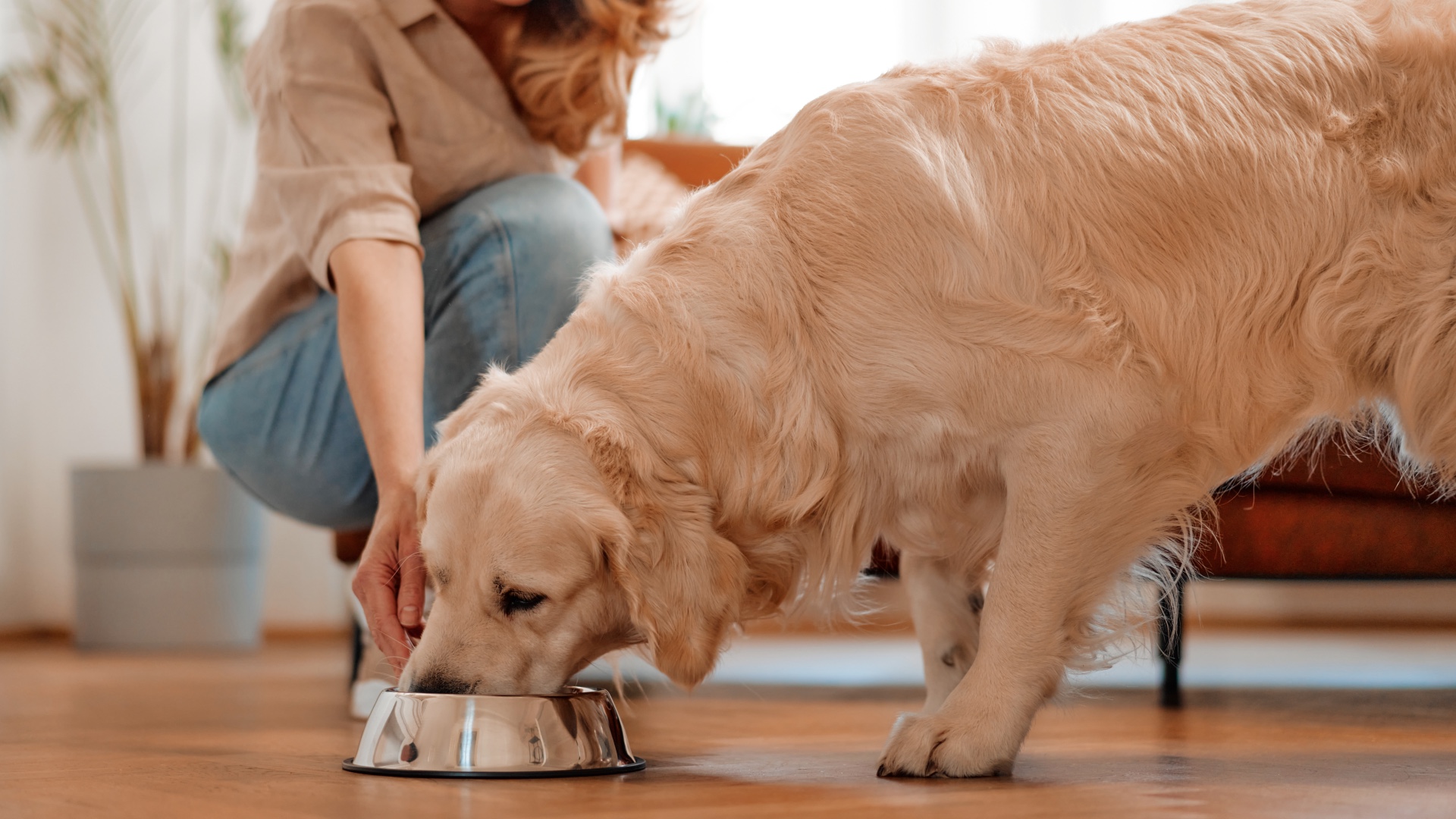
Is your dog’s food the right fit for them? Finding the best food for your pup isn’t always an easy task – there are so many different options out there, so where do you begin?
If your pup isn’t eating the best dog food for them, it can be difficult to know, particularly if they’re a picky eater and it’s one of the few foods they actually enjoy. But that’s where Katie McCaul, pet nutritionist at insect-based fresh dog food brand Tuggs comes in, explaining when we should change our dog’s diet.
“Typically, your dog’s diet should be in line with three key stages throughout their life – puppy stage, adult and senior,” McCaul begins. “Throughout these stages, you may need to change their diet to adapt to new needs as they grow older.”
She explains that puppies often need food with more protein and calories to help them grow, while adult dogs can often become overweight when not fed properly, and senior pets sometimes have medical issues that can benefit from a change in diet. Here are the differences between a puppy and a dog for more information.
But life stages aren’t the only thing to consider. McCaul has outlined five indications that your dog could benefit from a new diet, as follows.
1. A dull, flaky coat
“Diets rich in essential fatty acids are a key component in keeping a pet’s skin healthy, and therefore his or her coat, in tip-top shape,” says McCaul. “Look for a diet containing both Omega-3 and Omega-6 fatty acids to support your pet’s coat.”
2. ‘Senioritis’
The age at which a dog is considered senior will differ depending on breed, but as a dog gets older, their nutritional requirements will evolve. “To match reduced levels of activity, senior dogs often require diets with fewer calories but more fiber, to help support their joints,” McCaul explains – check out these tips for taking care of senior dogs, too.
3. Gaining weight
“If your pet has gained weight, a diet specifically designed for weight loss is key to ensure they have the essential nutrients, vitamins, and minerals they need,” McCaul says.
4. Loose stools
When your dog has loose stools or chronic flatulence, this could indicate that they’re intolerant to something in their food or that the food they’re getting is low quality. “To find a solution,” recommends McCaul, “Try switching to a more premium food brand or opting for a diet specifically designed for sensitive stomachs.”
5. Allergies or itchiness
Allergies are fairly common in pets, and food can often be a cause. Consider swapping out your pup’s diet for a low-allergen one.
If you’re planning on moving your dog to a new diet, it’s best to gradually introduce the change, replacing their current food with their new food over the course of a week. Take things slowly to reduce the risk of upset stomachs.
For more advice about feeding dogs, here’s how to plan your dog feeding schedule, and here are the foods that dogs should never eat.







